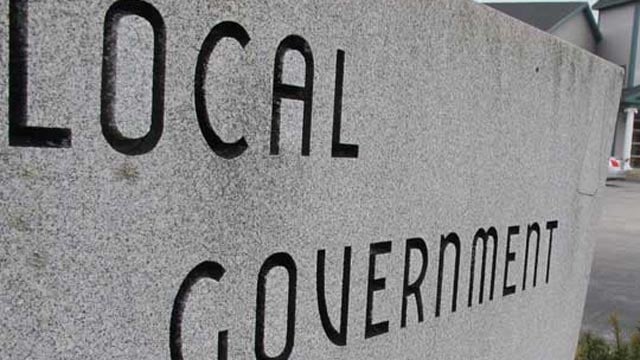environmental social governance text on wooden signpost outdoors in nature
BY ANTHONY MICHAEL IZUAGIE
At a time when high temperatures, rising sea levels, and global warming threaten global ecosystems, environmental, social, and governance (ESG) principles and practices have become special tools for addressing these challenges. Emphasis on building a green economy and sustainable future has resulted in drastic global action being prioritised through the nationally determined contribution (NDC). With NDC, countries have pledged to promote net-zero greenhouse emissions and adapt to climate change.
Developments beyond the Paris Accord of 2016 have broadened the scope of action for mitigation and adaptation including business finance with lenders and investors favouring enterprises committed to sustainability. In Nigeria, the Sustainability Banking Principles introduced in 2012 require that banks integrate environmental and social considerations into decision-making processes. Similarly, angel investors and private equity firms prioritise ESG compliance when evaluating potential investments, recognising the long-term value and profitability these practices generate during investment exits.
The Nigerian Stock Exchange (NSE) mandated listed companies to disclose their ESG activities annually by focusing on employee welfare, environmental protection, and accountability through transparent governance practices. Furthermore, the Financial Reporting Council of Nigeria (FRCN) has issued guidelines encouraging SMEs to adopt sustainable reporting.
Advertisement
With these commitments, sole proprietorship SMEs will face the herculean task of meeting ESG governance requirements, particularly under the revised Companies and Allied Matters Act (CAMA,2020) which permits incorporation by a single director/shareholder. This raises concerns about governance oversight, strategic planning, and compliance for such businesses.
Measures such as fostering transparent decision-making processes, establishing robust governance systems, conducting regular financial audits, ensuring regulatory compliance, and leveraging boutique ESG service providers will help to overcome this structural limitation. With these in place, sole proprietorship SMEs can align with ESG standards and practices, access critical funding opportunities, and position themselves for long-term sustainability and growth in the global marketplace.
Amid these fantastic demands for ESG practice like constituting a board of directors, strategic planning and board committee oversight, risk management, ethical and integrity standards, crisis management, and business continuity, and relating it to the revised Companies and Allied Matters Act which permits incorporation by a single shareholder, we can agree that most sole proprietorship SMEs are liable not to conform effectively with the governance requirement. For this reason, we look at how SMEs can overcome this limitation.
Advertisement
Transparent decision-making: SMEs must structure the other parts of their governance mechanism such as having a strong management team for making decisions. The decision-making responsibility of a company rests on the Board of directors, so in the absence of a board especially in the case of sole proprietorship SMEs, this limitation can be overcome by creating other management structures to ensure transparency and accountability in the firm. It is said that two good heads are better than one, though most sole proprietorships are cautious about protecting their investment however they can encourage transparency through regular administrative meetings, and documentation of their decision-making process.
Established systems: This includes a system of governance and other systems for managing risk such as internal controls. A misconception of sole proprietorship SMEs is that the business survives on the knowledge of the founders which is they understand the business model better than others. Small businesses require more than an expert knowledge of the business process. SMEs need to develop sales systems, accounting systems, advertising and marketing, recruitment and staffing systems etc.
Consistent financial audits: Most Nigerian SMEs don’t find it convenient to prepare their books. Some owners believe it exposes their business secrets to intruders while others lack the knowledge to engage in this process while others are compelled by covenants and regulars to write up their books. The last group that writes their books usually doesn’t do so regularly. It is a great advantage for SMEs to write books because accounting is the language of business. Accounting helps to capture the data that will reflect the profitability, liquidity, and business sustainability.
Compliance with regulations: This is very important for sole proprietorship SMEs where the owners have the notion, that I am my boss and no one can dictate for me, thus the willingness and ability to comply with regulation that strengthens risk management and transparency is below average. In Nigeria, small businesses are expected to file annual returns with the Corporate Affairs Commission (CAC) yearly, they are expected to register with the Federal Inland Revenue Service (FIRS) for value-added taxes (VAT) remittance, register with the States Internal Revenue Service for Pay As Your Earn(PAYE) and withholding (WHT) tax remittance.
Advertisement
Realistically, this entails so much to do for SMEs but for those that meet this requirement, they enjoy so many privileges over those that default. Importantly, compliance validates the ethical practices of a firm therefore sole proprietorship SMEs should make compliance a priority because this can help to amplify its Environmental, social, and governance commitments.
Use of boutique ESG service providers: Like big firms that enlist services of boutique ESG service providers, sole proprietorship SMEs can seek the services of
small ESG boutique service firms to support their ESG reporting and advisory. Similar to the services of auditors and tax advisers to SMEs, enlisting the services of ESG service providers will help overcome the challenges of developing and implementing an ESG strategy.
As the deadline for reporting draws closer, sole proprietorship SMEs can begin to brace for the task ahead by paying attention to the points above to achieve compliance by 2030. There is an urgent need for sole proprietorship SMEs to embrace environmental, social, and governance practices to remain competitive and sustainable in the global scheme of doing business.
Anthony Michael Izuagie is an MBA student at Dillard College of Business Administration. You can contact him via [email protected]
Advertisement
Views expressed by contributors are strictly personal and not of TheCable.











